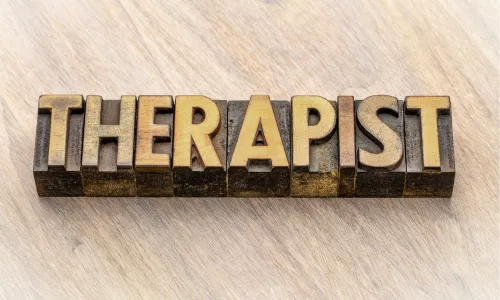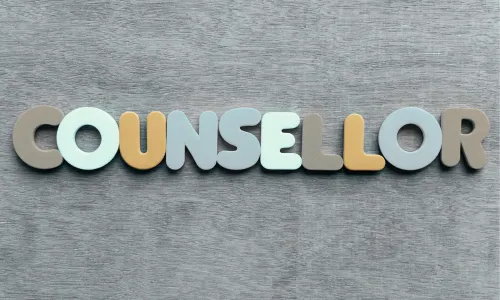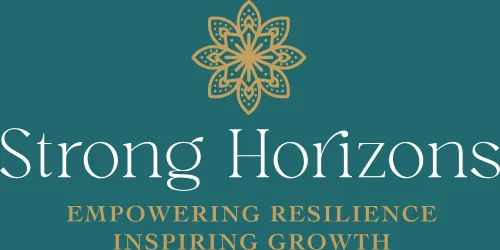Coaching vs Counselling vs Therapy:
What's the Difference
Finding the right support for your wellbeing journey
Help for Stress, Anxiety, Trauma and Mental Health Support in Carlisle
You don't have to figure this out alone.
If you're feeling overwhelmed by stress, struggling with anxiety, or dealing with the impact of trauma or burnout, you might be wondering what kind of support is right for you. This guide explains the difference between counselling, therapy, and coaching — so you can make an informed choice and take the first step towards feeling better
At Strong Horizons, I specialise in somatic trauma-informed coaching — a safe, supportive space where you can begin to heal, rebuild confidence, move forward, and create lasting change without reliving your story.
The Difference Between Therapy, Counselling, and Coaching
Therapy focuses on treating diagnosed mental health conditions, offering a safe, structured space for deep emotional healing. Counselling provides short-to-medium-term support, helping people navigate life challenges and gain clarity. Coaching is future-focused, giving you practical tools, support, and confidence to create meaningful change without having to relive your story.
How Therapy, Counselling, and Coaching Compare

Therapy
Focus: Treating diagnosed mental health conditions, deep emotional healing, exploring the past
Best For: Those with diagnosed mental health conditions, or those experiencing significant emotional distress
Approach: Evidence-based, clinical methods, diagnostic, often explores past experiences to promote healing
Goal: Relief from psychological pain and improved mental health

Counselling
Focus: Emotional support and guidance through life challenges
Best For: People navigating stress, grief, or life transitions, seeking clarity and coping skills
Approach: Reflective, relational, offers a safe space to talk through challenges.
Goal: Coping skills and emotional understanding

Trauma-Informed Coaching
Focus: Future-focused support and personal empowerment for clarity, growth and meaningful change
Best For: Individuals ready to break cycles of stress to feel like themselves again, seeking change, growth or alignment in personal / professional life
Approach: Collaborative, goal oriented and future focused, builds resilience and agency.
Goal: Practical support and tools to create meaningful change and build emotional resilience to move forward and thrive without reliving your story
Therapy: Deep Healing for Mental Health
Therapy is delivered by a qualified mental health professional and focuses on:
Diagnosing and treating mental health conditions (e.g. depression, PTSD, anxiety disorders)
Exploring past experiences and emotional wounds in a structured, supportive way
Providing a safe, long-term space for deep emotional processing
Helping people in crisis or those who need a clinical approach
Therapists are often regulated professionals (e.g. psychologists, psychotherapists) with specialist training in evidence-based interventions.
Counselling: Emotional Support and Guidance
Counselling is usually shorter-term and focuses on:
Supporting people through difficult life events or transitions
Providing a safe, non-judgemental space to talk things through
Helping people understand feelings, patterns, and choices
Offering emotional support rather than diagnosis
Counsellors often work with people who don't need a clinical intervention but want skilled support with specific challenges
Coaching: Forward-Focused Support for Growth and Resilience
Coaching focuses on practical tools, self-awareness, and forward momentum rather than diagnosis or deep emotional processing. It's for people who feel ready to move forward but want support, clarity, and a safe space to do so.
Coaching is:
Future-focused: it explores where your are now and where you want to be, building strategies to bridge that gap
Non-clinical: Ideal for those wanting practical support rather than therapy, without the need for diagnosis
Empowering: You'll gain tools to regulate stress, build confidence, and take action toward your goals
Compassionate and practical: Designed to help you move forward without reliving your story, at a pace that's right for you
How Trauma-Informed Coaching is Different
Trauma-informed coaching integrates an understanding of trauma into the coaching process, using a body-first approach to support healing, resilience, and meaningful change.
Most traditional coaching works cognitively, often focusing on mindset and goals alone. Trauma-informed coaching goes deeper and bridges the gap between coaching and therapy. Rather than treating trauma, it works with its impact — helping you feel safe, steady, and able to grow —without reliving your story.
It recognises that:
Trauma isn't just something that happened in the past
Stress and trauma live in the nervous system, not just the mind, shaping how you think, feel, respond, and connect to others
Real, lasting change requires a body-first, compassionate approach
You don't have to "dig up" your trauma to heal - safety and regulation come first.

How Trauma-Informed Coaching Can Help You
At Strong Horizons, trauma-informed coaching is blended with somatic (body-based) practice and designed to meet you where you are —with compassion, non-pathologising support, and practical tools for everyday life. Together, we focus on helping you:
Rebuild a sense of internal safety and trust
Understand and regulate your nervous system
Break cycles of stress, burnout, overwhelm and self-doubt
Strengthen your emotional capacity and resilience
Cultivate clarity, self-leadership and empowered decision-making
Develop practical tools that support balance and calm in daily life
Integrate sustainable wellbeing practices that align with your values and goals.
The goal is simple: To help you feel grounded, supported, and confident — with practical tools that honour your pace and create lasting change, in away that feels safe for your nervous system.
How to Choose What's Right for You
If you want .....
Consider ....
Emotional exploration and healing, or are in crisis, or have a diagnosed mental health condition
Therapy
A reflective space to talk, gain clarity, and get guidance through stress, grief, or life challenges
Counselling
Practical, forward-focused support to feel better, build resilience and create lasting change
Coaching / Trauma-Informed Coaching
Therapy, counselling and coaching are distinct practices with different focuses and goals. Coaching helps individuals work towards their future goals, while counselling and therapy focuses on addressing the past. These approaches all have their own benefits and can complement one another. There is no "better" or "worse" — it's about finding what feels right for you.
A Note on Overlap
The lines between therapy, counselling, and coaching aren't always rigid. Many practitioners train in multiple approaches, drawing from different techniques to support their clients. You may see terms like CBT, somatic work, psychodynamic therapy, or trauma-informed coaching.
The best way to choose the right support is to speak with a provider about their approach and see whether you feel safe, understood, and supported. It's not just about qualifications or a certain field — it's about finding the right fit for your needs
Next Steps
If you're unsure where to start, that's okay — you don't have to figure it out alone. We'll talk through your situation in a free, no-pressure discovery call and see what's right for you
© 2025 Strong Horizons. All rights reserved. | Privacy Policy | Terms
